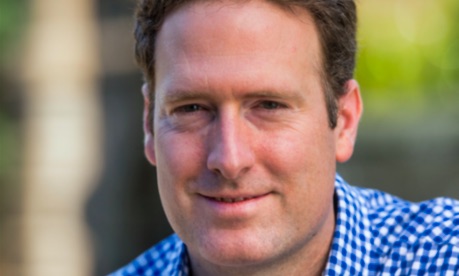A new Vatican statement that has provoked widespread criticism for sharply rejecting the blessing of same-sex unions is the latest example of why it’s hard for many people to take the Catholic Church’s own professed values of equality and dignity seriously.
The decree, which notes God “cannot bless sin,” reiterates traditional Catholic teaching on sexuality. But the outpouring of painful reactions demonstrates the limits of Pope Francis’ welcoming gestures toward LGBTQ people and is a stark reminder that my church continues to deny people their full humanity.
Straight Catholics who love our church and LGBTQ friends and family in equal measure are finding it increasingly difficult to square the church’s often contradictory messages.
The Catholic catechism insists gay people should be treated with dignity and “every sign of unjust discrimination” should be avoided.
This is the same church that, in a 2003 Vatican statement, said allowing children to be adopted by same-sex couples “would actually mean doing violence to these children.”
The same church that has promised to welcome and accompany gay Catholics is now opposing the Equality Act in Congress, which would ban discrimination against people based on sexual orientation and gender identity. And in a U.S. Supreme Court case that will be decided this summer, Catholic Social Services in Philadelphia wants to continue operating as a government contractor and receive city funding while refusing to place foster children with same-sex couples.
It’s a strange and un-Christian form of love that tells people they are equal in God’s eyes but then acts in ways that deem their committed relationships and parenting as inferior.
The Vatican’s latest statement is likely to cause spiritual and psychological damage to young LGBTQ people who already experience higher rates of suicide, and push more people away from the institutional church.
This statement stings even more coming after what has felt like, for many LGBTQ Catholics, a shift with Pope Francis toward more welcoming and inclusive language.
“Not since the anger over sex abuse in 2002 and 2018 have I seen so many people so demoralized, and ready to leave the church,” tweeted the Rev. James Martin, a prominent Jesuit priest and advocate for LGBTQ Catholics who has met with Pope Francis and serves as a Vatican adviser.
“And not simply LGBT people, but their families and friends, a large part of the church.”
Perhaps a necessary reckoning over how the church thinks about LGBTQ people and human sexuality is arriving.
Belgian Bishop Johan Bonny of Antwerp said the Vatican statement left him with “intellectual and moral incomprehension.”
In a commentary published in several Belgian and international newspapers, the bishop apologized for those who found the decree “painful and incomprehensible.”
The bishop noted that he knows same-sex couples “who are legally married, have children, form a warm and stable family and actively participate in parish life. I’m immensely appreciative of their contributions.”
Archbishop Mark Coleridge, president of the Australian Bishops’ Conference, told The Tablet, a weekly Catholic journal, the statement “isn’t by any means the end of the conversation. I think it should give greater impetus to another kind of conversation about inclusion.”
Even the Vatican statement, which in part came as a response to German bishops involved with ongoing discussions about blessing same-sex couples, cites the “positive elements” of gay relationships and acknowledges they should be “valued and appreciated.”
Several U.S. Catholic bishops in recent years have made efforts to show greater welcome toward LGBTQ people.
After the 2015 Supreme Court decision legalizing same-sex marriage, Chicago Cardinal Blase Cupich called for “real, not rhetorical” respect for gays and lesbians.
Newark Cardinal Joe Tobin welcomed a pilgrimage of LGBTQ Catholics to the city’s cathedral in 2017.
San Diego Bishop Robert McElroy has said the church’s description of gay sexual intimacy as “intrinsically disordered” is “very destructive language that I think we should not use pastorally.”
LGBTQ Catholics and allies will continue to remind our church that until there is real discernment about how a disordered theology that excludes and wounds is never holy, welcoming rhetoric rings hollow.
Catholic leaders can begin by showing more humility.
The hierarchy does not have a monopoly on truth when it comes to the complexities of gender and human sexuality.
Reform and renewal first begin by listening — and acknowledging you have something to learn.
- John Gehring is Catholic program director at Faith in Public Life. He is a contributing editor at Commonweal magazine, and an adjunct professor of journalism at American University. Gehring is a graduate of Mount Saint Mary’s University in Maryland, and Columbia University’s Graduate School of Journalism in New York City.
- The views expressed in this commentary do not necessarily reflect those of Religion News Service.
- First published in RNS, republished with permission.
News category: Analysis and Comment.




